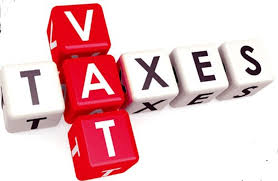The proposed increment in Value Added Tax, VAT, from five to 7.5 percent by the federal government will expose Nigerians to more hardship, causing tax experts to call on the government to stop the increase.
The experts, who spoke at the Chartered Institute of Taxation of Nigeria, CITN, sensitisation seminar on current issues in Nigerian taxation in Lagos, include former Accountant-General of the Federation, Dr. James Kayode Naiyeju, and Yomi Olugbenro of Deloitte & Touche, among others.
In his presentation, the former Accountant General of the Federation explained that the economy was not buoyant enough to accommodate VAT increment.
“Your growth rate must be in conformity with the buoyancy of the economy. But with what we are having now, there is a problem, the economy is not too buoyant and you are increasing VAT. Are you trying to say you are trying to increase the hardship of the citizens? That is a dilemma from the government,” he said.
Rather than the increase taking effect in the year 2020, the former AGF proposed a law to back the commencement date to 2021 for new VAT take-off, adding that the economy would have grown by then.
Naiyeju, a former president of CITN, who spoke as a moderator at the seminar, also criticised the collection of the Nigeria Police Trust Fund from corporate organisations’ net profits, describing it as a step in the wrong direction.
He reiterated that the collection of the fund did not give room for proclaimed accountability, since it did not go through the appropriate channel of budgeting.
The Act, proposed to be in force for a six-year period, will require corporate organisations to part with 0.005 percent of their net profits to fund the training of personnel, procurement of equipment, and instructional materials for police colleges, and boost police welfare.
“Human beings make the law. We will tell the parliament as an institute and we shouldn’t mince words, because when we begin, very soon, prison will come that they need prison tax fund and other security agencies would come to ask for theirs, and it is going to be on the same corporate companies’ profits.
“Very soon, nobody will go for business again because all the profits would have been given to the security agencies. When you collect this money, you will hand it over to the police. With my expertise, I do not agree with that, it is a step in the wrong direction,” Naiyeju said.
Also speaking on the effects of the increase in VAT rate on Nigerians, Partner, Deloitte & Touche, Lagos, Yomi Olugbenro, said increasing VAT to 7.5% would have negative impact on Nigerians.
Olugbenro, who was represented by Ashiatu Agboluaje, said with about 20 million people in Nigeria’s tax net and a paltry 6.1 percent tax to gross domestic ratio, one of the lowest globally, Nigeria was still a far cry to where it was supposed to be.
He said: “To make meaningful development as a nation, World Bank says tax-to-GDP should at least be a minimum of 15 percent. Nigeria is still a far cry to where it is supposed to be.
“Increasing VAT to 7.5% would have impact on Nigerians, but it would lead to inflation but we will all survive it.”
Earlier in her remarks, Dame Gladys Olajumoke Simplice, president and chairman of council, CITN, had said the seminar fits into the institute’s advocacy efforts targeted at providing professional thoughts and input towards government policies and programmes in such a way that misconceptions are clarified and shades of opinions on the subjects are elicited, collated and forwarded to the government for consideration and to guide future action.

